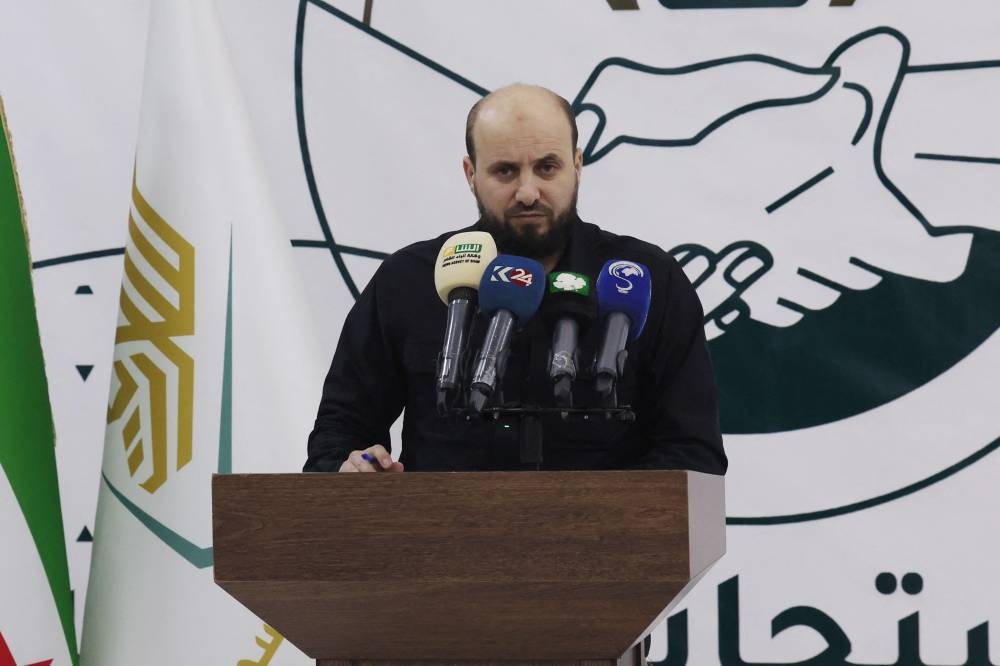The rebels who ousted president Bashar al-Assad and are now in power in Syria appointed a transitional head of government Tuesday to run the country until March 1, a statement said.
US Secretary of State Antony Blinken urged all nations to support an "inclusive" political process in Syria, saying the United States would eventually recognise a government if it meets such standards.
"The general command has tasked us with running the transitional government until March 1," said a statement attributed to Mohammad al-Bashir on state television's Telegram account, referring to him as "the new Syrian prime minister".
Assad fled Syria as a rebel alliance swept into the capital Damascus on Sunday, ending five decades of brutal rule by his clan.
Abu Mohammed al-Jolani, who headed the offensive that forced Assad out, had announced talks on a transfer of power and vowed to pursue former senior officials responsible for torture and war crimes.
Blinken said the future government of Syria should be "credible, inclusive and non-sectarian" after the rebels toppled strongman Bashar al-Assad, a member of the Alawite minority who led a secular dictatorship.
Laying out US priorities, Blinken said the new government must "uphold clear commitments to fully respect the rights of minorities" and allow the flow of humanitarian assistance.
The United States wanted the next government to "prevent Syria from being used as a base for terrorism", he added.
Although they no longer hold any territory in Syria, the Islamic State group remain active.
The Britain-based Syrian Observatory for Human Rights said IS fighters killed 54 government troops after capturing them as they fled across the vast Syrian Desert.
The UN envoy for Syria said the groups that forced Assad to flee must transform their "good messages" into actions on the ground.
"They have been sending messages of unity, of inclusiveness," Geir Pedersen said, adding that in Aleppo and Hama, "we have also seen... reassuring things on the ground".
But "what we need not to see is... that this is not followed up in practice in the days and the weeks ahead of us," he added.
EU foreign policy chief Kaja Kallas warned of the risks of sectarian violence and a resurgence of extremism. "We must avoid a repeat of the horrific scenarios in Iraq, Libya and Afghanistan," she said.
The overthrow of Assad, who maintained a complex web of prisons and detention centres to keep Syrians from straying from the Baath party line, sparked celebrations around the country and in the diaspora around the world.
The civil war that led up to it killed 500,000 people and forced half the country to flee their homes, millions of them finding refuge abroad.
Jolani, who now uses his real name Ahmed al-Sharaa, vowed: "We will not hesitate to hold accountable the criminals, murderers, security and army officers involved in torturing the Syrian people."
He held talks on Monday with outgoing prime minister Mohammed al-Jalali "to coordinate a transfer of power that guarantees the provision of services" to Syria's people, according to a statement on Telegram.
The fall of Assad has sparked a frantic search by families of the tens of thousands of people held in his security services' jails and detention centres.
As they advanced towards Damascus, the rebels released thousands of detainees, but many more remain missing.
A large crowd gathered Monday outside Saydnaya jail, synonymous with the worst atrocities of Assad's rule, to search for relatives, many of whom had spent years in captivity, AFP correspondents reported.
"I'm looking for my brother, who has been missing since 2013. We've looked everywhere for him, we think he's here, in Saydnaya," said 52-year-old Umm Walid.
Crowds of freed prisoners wandered the streets of Damascus, many maimed by torture, weakened by illness and emaciated by hunger.
The United Nations said whoever ended up in power in Syria must hold Assad and his lieutenants to account.
UN investigators who for years have been gathering evidence of horrific crimes called Assad's ouster a "game-changer" because they will now be able to access "the crime scene".
While Syrians were celebrating Assad's ouster, the country now faces enormous uncertainty, and it is unclear whether the dreams of democracy so many sacrificed their lives for will be realised.
Further complicating prospects, the Syrian Observatory for Human Rights said it had recorded more than 300 Israeli strikes on the country since Assad's fall.
Pedersen, the UN special envoy for Syria, called on Israel to stop.
"We are continuing to see Israeli movements and bombardments into Syrian territory. This needs to stop," he said.
The Observatory, which relies on a network of sources around Syria, said Israeli strikes had "destroyed the most important military sites in Syria".
The monitor said the strikes targeted weapons depots, naval vessels and a research centre that Western governments suspected of having links to chemical weapons production.
In the port city of Latakia, smoke was still rising Tuesday from the wreckage of naval vessels half under water in the harbour, an AFP correspondent reported.

Head of rebel group Hayat Tahrir al-Sham's (HTS) 'Salvation Government' in their northwest Syria bastion Mohammed Bashir, holds a press conference in the rebel-held northwestern Syrian city of Idlib on November 28, 2024. AFP
